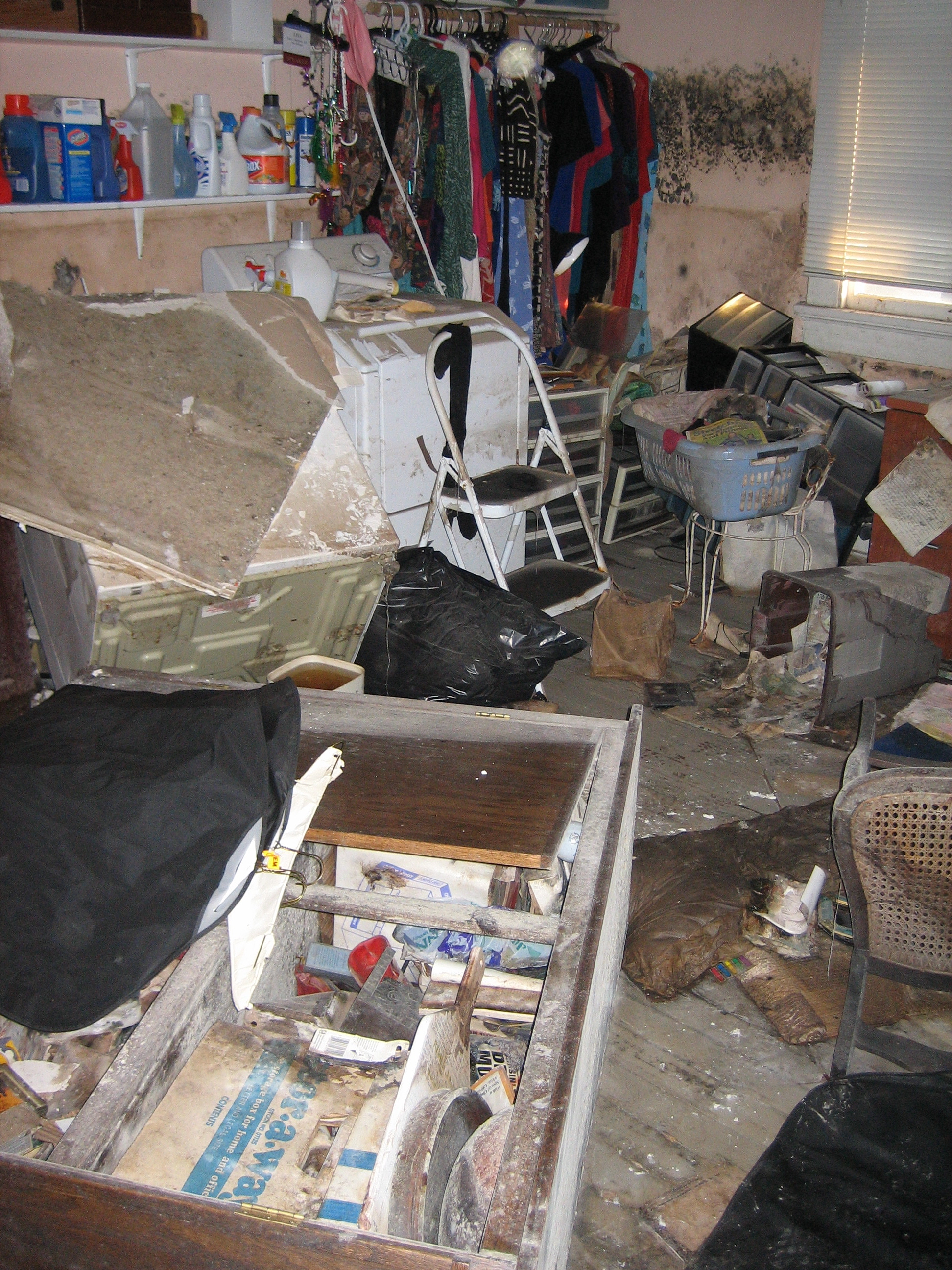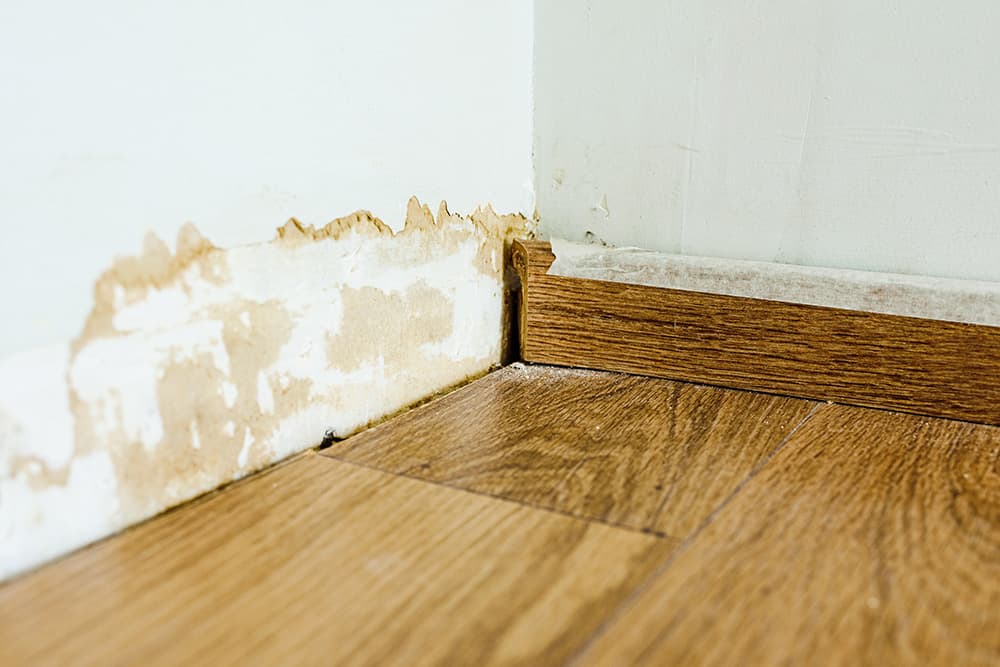Emergency Water Damage Restoration to Restore Your Property Quickly
Emergency Water Damage Restoration to Restore Your Property Quickly
Blog Article
The Refine of Water Damage Cleaning: Guaranteeing Your Home Is Brought Back Efficiently
Water damages can be a complicated challenge for homeowners, demanding a structured and thorough cleanup process to recover security and capability. At first, a detailed analysis is vital to recognize the extent of the damage and determine the proper removal measures. Following this, effective water removal strategies play a critical role in reducing more injury. The subtleties of drying out, sterilizing, and eventual remediation are similarly essential and typically ignored. Recognizing these phases can make a substantial difference in the outcome of your home's remediation, triggering a closer take a look at what each step entails.
Examining the Damages
Upon finding water damage, the primary step is to extensively examine the degree of the impact. This preliminary assessment is crucial, as it aids figure out the needed actions for reliable clean-up and remediation. Begin by inspecting the influenced locations, consisting of walls, ceilings, floorings, and personal belongings, to determine the source of the water intrusion, whether from flooding, leakages, or condensation.
Documenting the damages is important for both insurance coverage claims and intending repair initiatives - damage restoration services. Usage photographs and created notes to capture the extent of the damages, noting any kind of affected structural components and materials. Pay special attention to areas that may not be right away visible, such as behind wall surfaces and under carpets, as hidden dampness can cause further complications, including mold and mildew growth
In addition, examine the timeline of the water exposure. Ultimately, a detailed assessment lays the groundwork for an effective water damages cleaning process, making certain that all affected areas are attended to properly and thoroughly.
Water Removal Strategies

Experts generally use submersible pumps for bigger quantities of water, which can swiftly alleviate flooding in cellars or various other impacted areas. For smaller quantities, wet/dry vacuums are commonly utilized to extract recurring dampness from carpetings and difficult surfaces. Additionally, making use of mobile extractors enables targeted removal in confined rooms or areas with fragile materials.
In circumstances of polluted water, such as sewage or floodwater, advanced removal methods may entail making use of biohazard devices to guarantee security and conformity with health and wellness policies. High-powered removal devices are important in reducing water retention in architectural products, which can lead to mold and mildew development and structural deterioration otherwise addressed quickly.
Eventually, the effectiveness of water removal methods plays a crucial function in the overall success of the water damage clean-up procedure, preparing for succeeding repair efforts.
Drying and Dehumidification
As soon as standing water has been properly extracted, the following critical stage in the water damages clean-up procedure is drying out and dehumidification. This action is vital to avoid further damages and mold development, which can occur within 24 to two days in damp settings.
To achieve efficient drying out, specialized devices such as industrial-grade air moving companies and dehumidifiers is employed. Air movers flow air across wet surfaces, boosting evaporation rates, while dehumidifiers lower humidity levels airborne, advertising a conducive atmosphere for drying out. The mix of these tools makes certain that moisture is extracted from floorings, walls, and home furnishings, permitting them to completely dry completely.
It is essential to check the drying out procedure closely. Professionals usually use moisture meters to evaluate the wetness material in numerous materials, ensuring that all affected areas reach acceptable dryness degrees. This careful method assists to stop concealed dampness pockets that might result in architectural damages or undesirable mold growth.

Cleaning and Disinfecting
After the drying out and dehumidification phase is complete, the next important action in water damages clean-up is cleaning up and sanitizing the affected areas. This procedure is vital to stop the growth Get More Information of mold and mildew, bacteria, and various other virus that thrive in moist environments.
The cleaning phase commonly involves getting rid of any debris, dirt, and pollutants from surface areas utilizing specialized cleaning representatives. For hard surface areas, a mix of soap and water or industrial cleaning items is often utilized. Soft materials, such as furniture and carpets, might require extra substantial cleaning techniques, including heavy steam cleansing or deep extraction strategies, to make sure complete sanitation.

Sterilizing adheres to cleaning, utilizing EPA-approved anti-bacterials to remove damaging microbes. This action is vital, specifically in areas that might have come right into contact with floodwaters or sewage, as these resources can position severe wellness risks.
Furthermore, it is necessary to resolve any type of remaining odors, which may need using odor neutralizers or advanced methods like ozone treatment. Appropriate cleaning and try this website disinfecting not just recover the safety and hygiene of your home but also prepared for effective reconstruction and repairs in subsequent stages of the water damages cleanup process.
Remediation and Repair Work

As soon as the evaluation is complete, repair initiatives can begin. This usually involves fixing or replacing broken products, guaranteeing that all work follows regional building codes and criteria. If drywall has been compromised, it will certainly require to be gotten rid of and replaced with brand-new material. In addition, flooring might require comparable interest, relying on the level of water direct exposure.
It is critical to involve knowledgeable restoration experts throughout this process, as they have the experience to manage intricate repair work properly. They can aid minimize potential future problems, such as mold and mildew development or structural instability, thus making sure a safe and habitable living atmosphere. Inevitably, article source reliable restoration and fixings restore the home's integrity and improve its general worth.
Verdict
Finally, the procedure of water damages clean-up is critical for restoring a home to its pre-damage condition. Each stage, from evaluating the damage to carrying out efficient water removal methods, followed by extensive drying out, sterilizing, and needed repair services, plays a crucial function in making certain safety and security and conformity with structure requirements. Efficient implementation of these actions not just alleviates instant damage but also enhances the long-term honesty and worth of the building.
Water damages can be a complicated challenge for homeowners, requiring a structured and thorough clean-up procedure to bring back safety and performance. Eventually, an extensive analysis lays the groundwork for an effective water damage clean-up procedure, guaranteeing that all influenced areas are resolved efficiently and extensively.
Effective water removal methods are crucial in reducing damages and avoiding additional complications adhering to a water intrusion event.In verdict, the process of water damage cleaning is crucial for recovering a home to its pre-damage condition. Each stage, from analyzing the damage to executing reliable water removal techniques, complied with by complete drying out, sanitizing, and required repair work, plays a vital role in guaranteeing safety and security and compliance with structure criteria.
Report this page